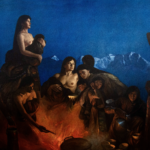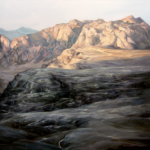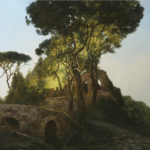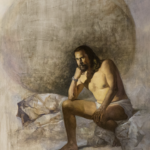
Zhou Zhiwei is a master of his craft. Studying under some of the most prolific artists of the century, Zhiwei learnt first-hand how to be one of the greats. Adapting and reinvigorating classical themes while constantly evolving his technique, Zhiwei is at the forefront of contemporary classical painters; a painter who has successfully inserted himself into the long lineage of great masters.
Zhiwei has spent most of his life in Italy, a place with which he shares a symbiotic relationship. The landscape and history permeate his canvases, most prominently the city of Venice, which he has visited for over forty years. The sinuous canals that meander through the topography are infused with dappled light that reflects off the surface of the water. Although recognisably Venetian, the landscapes are conjured solely from the artist’s imagination; testament to his imaginative prowess and indefatigable knowledge of the city.
Moreover, Zhiwei had the fortune of studying under some of the most prominent figures in Italian contemporary art – including Riccardo Tommasi Ferroni, Pietro Annigoni, Gregorio Sciltian, and Giacomo Manzù – under whom Zhiwei refined his meticulous technique. Infusing energy into his realistic portraits and reinvigorating classical themes with modern life, the amalgamation of these perceivably polarising binaries – old and new, classical and modern – is what makes the artist’s compositions so captivating.
The scenes of everyday life that Zhiwei paints appear to use simple reflections of the perceived world; however, they also ask the viewer to ponder deeper questions about the human condition. He manages to express, with direct and sympathetic touch, the beauty of the world around us in art.






